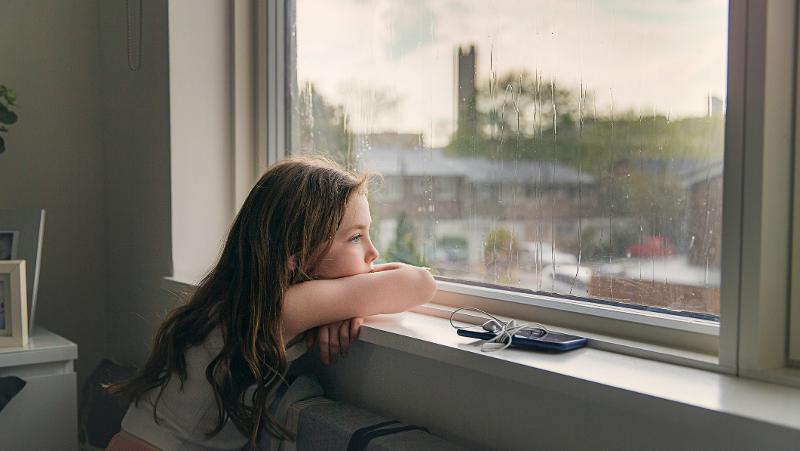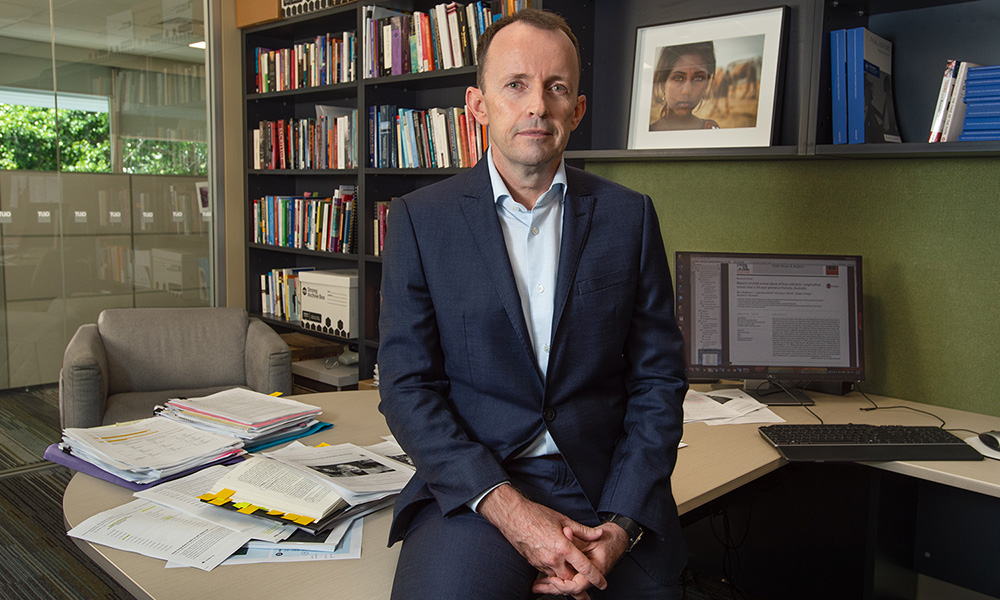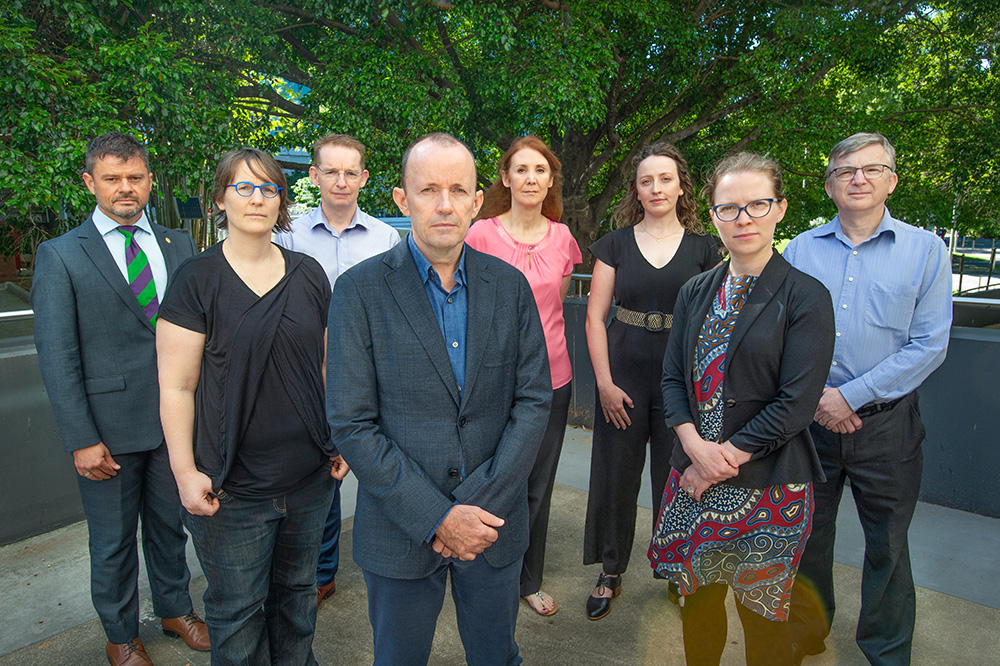
A landmark nationwide study of 8500 Australians, aged 16 and over, has identified the widespread scope of child maltreatment that highlights the need for a nationally coordinated response.
- 1 in 4 Australian children experience sexual abuse
- Sexual abuse and emotional abuse strongly linked with mental health disorders
- 3 in 10 16-24 years old have self-harmed
The findings of the five-year study were published in the Medical Journal of Australia today.
Lead investigator Professor Ben Mathews from QUT School of Law said the Australian Child Maltreatment Study was the first to identify the nationwide prevalence and nature of five forms of child maltreatment – physical, emotional, and sexual abuse, neglect and exposure to domestic violence - and their associated mental health disorders and health risk behaviours throughout life.
“Child maltreatment has been an enduring problem for Australia, and it continues today,” Professor Mathews said.
“Australian youth are suffering badly. Emotional abuse, exposure to domestic violence were most common. Sexual abuse by some types of offender is becoming more common.
“A major area of concern is the increase in sexual abuse by known adolescents, the group who inflict the greatest proportion of all sexual abuse.
“However, declines in sexual abuse by some other groups indicate some historic social shifts have been influenced by developments in law, policy and practice, and we need to ensure these continue.
“Similarly, we found a significant recent decline in physical abuse, indicating the success of prevention programs, parenting education, and social norms supporting children’s rights.”

Professor Mathews said the devastating effects of child maltreatment on mental health and health risk behaviours began in childhood and influenced major cascading, detrimental effects.
“Sexual abuse and emotional abuse were most strongly associated with mental health disorders and health risk behaviours, making these two forms of maltreatment prime targets for intensified national prevention and early intervention policies,” he said.
“Child maltreatment contributes greatly to our national crisis in youth self-harm and suicide attempts.
“We found that among all our 16–24-year-old participants, 3 in 10 had self-harmed in their lifetime and that 2 in 5 females had self-harmed compared to 1 in 5 males.”
Professor Daryl Higgins, director of Australian Catholic University’s Institute of Child Protection Studies, said the significant research findings demanded immediate attention to better safeguard children.
“We now have the data to prove that maltreatment is not only occurring at alarming rates, but that children are suffering multiple types of maltreatment, and we must do everything in our power to stop this harm,” Professor Higgins said.
Dr Hannah Thomas, from the Queensland Centre for Mental Health Research, said prevention of child maltreatment and its associated harms must be a founding principle of mental health policy.
“It requires sustained investment in prevention and early intervention. We must also better meet the health needs of survivors of child maltreatment over their lifetime,” Dr Thomas said.

Other findings in the ACMS report include:
Widespread child maltreatment:
- 1 in 3 Australian children experience physical abuse (32 per cent)
- 1 in 4 Australian children experience sexual abuse (28.5 per cent)
- 3 in 10 Australian children experience emotional abuse (30.9 per cent); and
- 4 in 10 Australian children experience exposure to domestic violence (39.6 per cent).
Multi-type maltreatment:
Almost 1 in 4 children experience 3-5 types of maltreatment and this chronic multi-type maltreatment is associated with worse outcomes. Multi-type maltreatment is influenced by parental risk factors such as alcohol and substance misuse, and mental health problems.
Mental health disorders:
Participants who experienced child maltreatment were almost three times more likely to have generalised anxiety disorder, severe alcohol use disorder, and major depressive disorder, and were nearly five times more likely to have PTSD.
Emotional abuse is strongly associated with all mental health disorders and three key health risk behaviours – self-harm, suicide attempt, and cannabis dependence.
Girls are particularly vulnerable:
- Girls experience twice as much sexual abuse as boys (37.3 per cent vs 18.8 per cent)
- 1.5 times as much emotional abuse as boys (35.6 per cent vs 25.4 per cent)
The ACMS is funded by the National Health and Medical Research Council and the Australian Government.
The research team includes 10 chief investigators from Australia, the United Kingdom and the United States.
Professor Ben Mathews - Lead investigator (Queensland University of Technology)
Professor Daryl Higgins (Australian Catholic University)
Professor James Scott (QIMR Berghofer; Child Health Research Centre, University of Queensland)
Professor David Lawrence (Curtin University)
Associate Professor Holly Erskine (Queensland Centre for Mental Health Research, University of Queensland)
Dr Hannah Thomas (Queensland Centre for Mental Health Research; QIMR Berghofer;)
Professor Rosana Pacella (University of Greenwich)
Associate Professor Franziska Meinck (University of Edinburgh)
Professor David Finkelhor (University of New Hampshire)
Additional resources including ACMS report, infographics, photo, video Q&A, and responsible reporting guidelines available here.
QUT Media contact:
Niki Widdowson, 07 3138 2999 or n.widdowson@qut.edu.au
After hours: 0407 585 901 or media@ qut.edu.au


